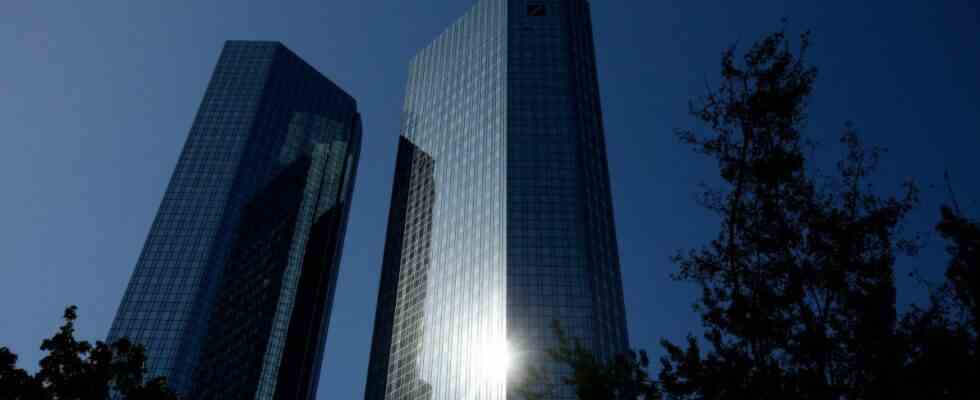Deutsche Bank has extensive experience dealing with uninvited guests from the criminal justice system. And she has a special relationship with the public prosecutor’s office in Frankfurt, which has often taken on Germany’s largest financial institution. After a long time, both sides have now refreshed their relationship. On Friday, investigators from the public prosecutor’s office, the Federal Criminal Police Office and officials from the financial supervisory authority Bafin searched the bank’s premises in Frankfurt.
The public prosecutor initially only confirmed that there was a search warrant. “Further information cannot be given at the moment due to the ongoing investigative measures,” said the authority on Friday around noon. Deutsche Bank said the investigation was “related to money laundering reports submitted by the bank.” The bank cooperates with the authorities. Banks are obliged to report suspicious transactions to the authorities immediately.
According to information from Süddeutsche Zeitung there are currently no suspects, officially the investigations are aimed at unknown persons. According to reports, the bank submitted at least one suspected money laundering report in correspondent banking too late a few years ago. A spokesman for the bank declined to comment. Financial institutions use a network of so-called correspondent banks to conduct financial transactions worldwide in countries where they are not connected to a central bank themselves. This system is considered to be particularly vulnerable to money laundering.
An insider confirmed a report by Handelsblatt, according to which the affairs of a family member of Syrian President Bashar al-Assad were behind it. It is about the former Syrian Vice President Rifaat al-Assad. Although he was not a customer of the bank, the money house passed through a payment from him a few years ago via a correspondent bank without immediately submitting a suspicion report to the authorities as required. The bank only submitted this report last year, when the Syrian was in Paris because of convicted of money laundering had been. According to a Paris court, the 84-year-old is guilty of gang money laundering and the embezzlement of Syrian state funds.
Did Deutsche Bank just suck?
With thousands of suspicious facts that such a large institute reports to the authorities every year, something is bound to be overlooked. But if this happens too often, there are problems. And especially with such prominent names as Assad, the expectation is higher that they will attract attention. Deutsche Bank has a reputation problem in this area, which increased again with Friday’s search. Because the time of the scandals should actually be long over: CEO Christian Sewing had already assured when he took office in April 2018 that the bank would return to the path of virtue.
The new legal director, Stefan Simon, who moved from the supervisory board to the executive board over a year ago, has also committed himself to the fight against financial crime. For the first time, the bank is spending more than one billion euros on this, he said last year. The relationship with the authorities has now improved significantly, according to banking circles.
Suspicious authorities, multiple searches
However, the search does not indicate that the authorities fully trust the bank’s willingness to cooperate. “Apparently they still haven’t found a way to get away from the search measures, that’s really a problem,” says a person who knows the money house intimately.
The last public searches to date were in December 2018 and September 2019, when the Frankfurt public prosecutor’s office also searched the bank for misconduct in combating money laundering. At the end of 2018, there were suspected cases of money laundering caused by the Panama Papers had become known. At that time, about 170 officers had searched the offices. 2019 was about misconduct in connection with the Danish Danske Bank. Both cases also concerned suspected money laundering reports that were allegedly submitted too late. The money house later paid fines in the millions, but there were no charges.
A few months ago, the financial regulator Bafin also imposed a fine for deficiencies in the prevention of interest rate manipulation. Only a year ago, the supervisory authority extended the mandate of a so-called special representative until 2024, and the money house had to change its money laundering officer again. Experts from the auditing company KPMG have been monitoring the bank’s money laundering prevention on behalf of Bafin since 2018. Above all, the authority had complained about how the bank updates its customer files and monitors business with correspondent banks. So that’s exactly what it’s all about now.

